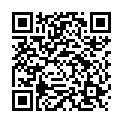|
|
|
| Module code: MAM_24_PE_1.04.IPE |
|
3SU+3PA (6 hours per week) |
|
10 |
| Semester: 1 |
| Mandatory course: yes |
Language of instruction:
German |
Assessment:
P241-0057 Exam (duration: 90 minutes) (50%)
+
P241-0058 Project work (50%)
[updated 29.08.2025]
|
DFMME-1b1 (P610-0447) Mechanical Engineering, Master, ASPO 01.10.2024
, semester 1, mandatory course, Specialization Product Development
MAM_19_PE_1.04.IPE (P241-0057, P241-0058) Engineering and Management, Master, ASPO 01.10.2019
, semester 1, mandatory course, Specialization Product Development
MAM_24_PE_1.04.IPE Engineering and Management, Master, SO 01.10.2024
, semester 1, mandatory course, Specialization Product Development
|
90 class hours (= 67.5 clock hours) over a 15-week period.
The total student study time is 300 hours (equivalent to 10 ECTS credits).
There are therefore 232.5 hours available for class preparation and follow-up work and exam preparation.
|
Recommended prerequisites (modules):
None.
|
Recommended as prerequisite for:
MAM2.1.3.24
[updated 29.10.2023]
|
Module coordinator:
Prof. Dr. Bernd Heidemann |
Lecturer: Prof. Dr. Bernd Heidemann
[updated 29.10.2023]
|
Learning outcomes:
After successfully completing this module, students will be familiar with special procedures and methods for the interdisciplinary development of complex technical (cross-over) products.
They will be able to adapt, modify and further develop procedures according to product and project-specific needs.
Students will be familiar with the aspects of sustainable product development and will be able to integrate them into development projects.
They will be able to familiarize themselves with the latest technological trends and developments that can be used to increase the benefits of integration in a product.
Students will be able to organize group dynamic processes within a team (e.g. create a project plan, coordinate cooperation, define and distribute work packages), apply them (e.g. for generating, discussing and evaluating solutions) and master them (e.g. in case of sudden, unforeseeable, or interpersonal influences).
[updated 13.11.2024]
|
Module content:
Introduction - terms and definitions
The technical product - needs and requirements Generating and satisfying demand Utility and prestige benefits Satisfaction of the prestige utility
Special process models for product development, e.g. VDI guideline, the “V-Model”, the “Münchener model”
Discursive and intuitive problem solving: Principles of creativity and creativity techniques. Systematic variation of solution properties
Special methods for clarifying tasks: e.g. quality function deployment (QFD) and sensible modifications, use of social media and online tools, stakeholder management.
Special methods and models for designing: The technical, tangible product as a system for transformation.
Abstraction models that are based on systems engineering and used to plan and structure complex, interdisciplinary (cross-over, 4.0 and higher) products with the transformations of material, energetic and informational variables. A special focus will be placed on the design of a benefit-oriented and benefit-driven information management system (collecting information in the form of relevant technical-physical parameters (data) and processing them for benefit-driven use in the respective product system). These concepts will be based on current technical solutions and the basics of control engineering In addition, trends in fundamental development and emerging solutions from information technology will also be taken into consideration.
Human-machine interface and communication in socio-technical systems of action.
The concept of sustainability and principles for taking it into account in product development.
The notion of “planned obsolescence” and its impact on efforts to achieve sustainability.
The term “over-engineering”
The methods of value analysis and target costing
The method complex for FMEA and its variants
[updated 29.08.2025]
|
Teaching methods/Media:
Seminar-based, interactive classes, including contributions prepared student work groups.
The “Project” course achievement is completed on the basis of an individual project plan with defined, measurable objectives, which is based on the content of the course and, in consultation with the lecturer, can also contain 3-5 self-defined focal points from the field of product development, which correspond to individual interests.
The project topic (“project idea”) with its individual focus can be defined by the student.
The project will be monitored in weekly work meetings.
The project should be carried out in teams in order to use and master group dynamic efffects.
[updated 29.08.2025]
|
Recommended or required reading:
Pahl/Beitz: Konstruktionslehre - Methoden und Anwendung erfolgreicher Produktentwicklung. Springer Vieweg, Heidelberg.
Pahl/Beitz: Engineering Design - A Systematic Approach. Springer-Verlag, London.
Ehrlenspiel, K.; Meerkamm, H.: Integrierte Produktentwicklung - Denkabläufe, Methodeneinsatz, Zusammenarbeit. Carl Hanser Verlag, München.
Herstatt, C.; Sander, J.: Produktentwicklung mit virtuellen Communities. Gabler-Verlag.
Vajna, S.: Integrated Design Engineering: Ein interdisziplinäres Modell für die ganzheitliche Produktentwicklung. Springer Verlag.
Engeln, W.: Produktentwicklung - Herausforderungen, Organisation, Prozesse, Methoden und Projekte. Vulkan-Verlag.
Scholz, U.; Pastoors, S.; Becker, J.; Daniela Hofmann, D.; Van Dun, R.: Praxishandbuch Nachhaltige Produktentwicklung. Spinger-Verlag.
Zimmerer, C.: Nachhaltige Produktentwicklung: Integration der Nachhaltigkeit in den Produktentstehungsprozess. Disserta-Verlag.
[updated 13.11.2024]
|


